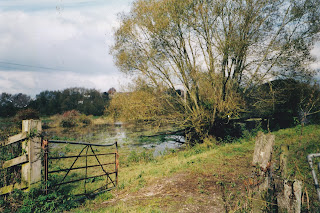Napoleon in the Plymouth Sound
 |
| The house on Ile D'Aix where Napoleon was accommodated before his surrender |
Whilst waiting to hear of his fate and dreaming of a future living in England, he was kept on the ship in Plymouth Sound for 10 days before being exiled to St Helena.
Many lives were lost in the 22 years of war until the final battle on a sloping
field just outside the
 |
| Napoleonic fortifications in Loredo, Northern Spain |
The impact of the Peninsular wars on Plymouth itself were far reaching from the influx of prisoners of war, through the expansion of the dockyards and the construction of the military hospital at Stonehouse. Apparently Napoleon was impressed by the construction of the outer breakwater which was underway at the time of his stay in Plymouth. The strategic and naval importance of Plymouth was finally confirmed by the anchoring of the Bellerophon in the Sound with Napoleon imprisoned on board.
 |
| Jennycliff Bay, Plymouth where the Bellerophon anchored |
The visit has been commemorated locally this summer with an exhibition at the museum and other events. There are also plans for a commemorative monument consisting of Dartmoor granite (from the prison) and stone from St Helena which arrived in the city by Brittany ferry. This was certainly one of the pivotal
edited 29/1/18 to remove the accidental alcohol!



Comments
Post a Comment